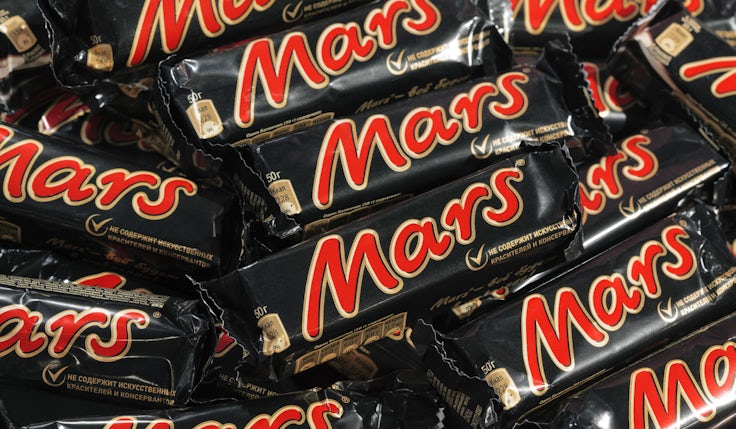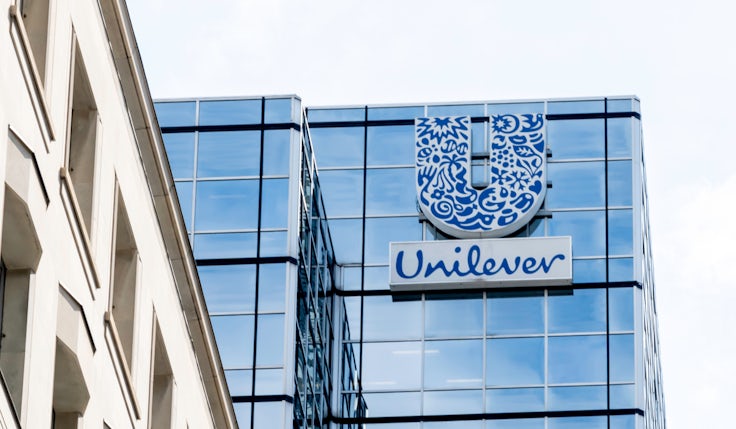Mars CEO: Attacks on brand purpose are ‘nonsense’
Dismissing its critics, Mars’s CEO believes brand purpose is an essential tool for “quality” companies in both talent acquisition and driving profit.
 Purpose and profit are not enemies, Mars CEO Poul Weihrauch has insisted, dismissing politicised discussions around the topic as “nonsense”.
Purpose and profit are not enemies, Mars CEO Poul Weihrauch has insisted, dismissing politicised discussions around the topic as “nonsense”.
The CEO of the FMCG giant, which owns brands including M&M’s, Pedigree and Dolmio, told the Financial Times that having a commitment to purpose is a characteristic of “quality companies”.
Purpose and commitments around environmental, social and governance (ESG) issues are essential in recruiting and retaining staff, Weihrauch claimed. A young graduate “won’t stay with [Mars] if [it doesn’t] care about ESG or purpose”, he said, adding: “We don’t believe that purpose and profit are enemies.”
Why Galaxy is making brand purpose its ‘number one priority’
In 2019, Mars rebranded to bring purpose to its fore. The ‘Tomorrow starts today’ platform introduced the business’s mission statement: ‘The world we want tomorrow starts with how we do business today’. In advance of the rebrand, marketing vice president Michele Oliver was promoted to the newly created role of global corporate brand and purpose director in 2018.
“This isn’t a marketing gimmick,” Oliver told Marketing Week in 2019, claiming customers had come to expect purpose from brands.
“Not only do consumers say they care about what’s behind the brand, they actually expect brands to behave responsibly and ethically, and so they should quite frankly,” she said.‘It’s not a marketing gimmick’: Mars on the power of purpose in a polarised world
The renewed purpose focus in 2019 would encompass every part of the company, Oliver said, from supply chains to recruitment processes.
These efforts had not attracted much mainstream attention until relatively recently, when Mars Wrigley brand M&M’s tweaked its “spokescandies”. These changes were designed to make the brand characters more inclusive, with one female character swapping high-heeled boots for sneakers, for example.
The changes to the characters were met with ire from some commentators, with Fox News anchor Tucker Carlson branding them “woke candies”.
The brand played off the controversy in its Super Bowl ad last month. The spot saw the characters return after they were seemingly put “on pause”. The ad scored 4.8 stars in System 1’s ad effectiveness ranking, which forecasts the long- and short-term commercial effectiveness of adverts by recording viewers’ emotional responses. Normally only 1% of ads score five stars. The M&M’s ad was ranked the second most effective of the night.
Speaking to the FT, Weihrauch claimed the ad has generated 25 billion impressions so far. “There’s lots of sales and it’s difficult to keep up with the orders,” he said, touting the effectiveness of the campaign despite the controversy.
The conversation generated by the M&M’s inclusivity drive hasn’t stopped Mars from pursuing purpose across its other brands. Last week, Galaxy unveiled its new brand purpose, which is centred around empowering women within cocoa growing communities and Galaxy retail markets.
Purpose in FMCG
Weihrauch, who took on the CEO role in September, was bullish about Mars’ growth prospects, claiming sales “could well double in a decade”. However, he said “responsible” growth was the priority for the business.
While Mars’s CEO is insistent profit and purpose do not have to be in opposition, rival FMCG business Unilever has faced a protracted debate on the topic.
In 2022, fund manager Terry Smith branded Unilever’s focus on sustainability and brand purpose “ludicrous”, claiming the strategy led to the FMCG giant’s underwhelming performance in 2021.
Unilever praises purpose amid fresh criticism from major investor
Smith, who is the founder of Fundsmith Equity Fund (reportedly Unilever’s 15th largest shareholder), reiterated his disapproval of purpose earlier this year, accusing the company of “virtue signalling”.
Outgoing Unilever CEO Alan Jope has remained firm in his defence of purpose. During an investor event in December, he reiterated the company’s belief that purpose-driven brands grow faster, claiming ‘high purpose’ brands delivered 6.1% of underlying sales growth in 2021, compared to just 0.2% contributed by ‘low purpose’ brands.








Comments